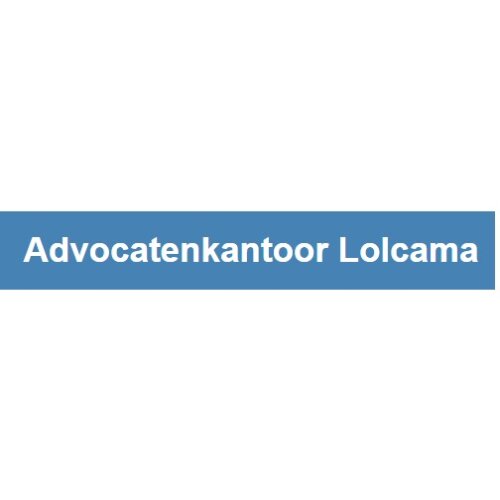Best Job Discrimination Lawyers in Netherlands
Share your needs with us, get contacted by law firms.
Free. Takes 2 min.
Or refine your search by selecting a city:
List of the best lawyers in Netherlands
About Job Discrimination Law in Netherlands
Job discrimination in the Netherlands is a significant issue that involves treating an employee or a job applicant unfavorably because of characteristics such as race, gender, age, disability, religion, or sexual orientation. The Netherlands has a comprehensive legal framework aimed at preventing discrimination in the workplace. Employers are required to provide an inclusive environment where every individual has equal opportunities for employment and advancement, irrespective of their personal characteristics.
Why You May Need a Lawyer
Understanding the complexities of job discrimination laws can be challenging. Common situations where you might need legal assistance include:
- If you have been unfairly dismissed or demoted based on personal characteristics.
- If you are facing harassment or a hostile work environment linked to discrimination.
- If you suspect that hiring, promotion, or compensation decisions are discriminatory.
- If your employer retaliates against you for reporting discrimination.
- If you need to navigate through complicated legal compliance issues.
Legal advice can be crucial in assessing the merits of your claim, understanding your rights, and determining appropriate legal action.
Local Laws Overview
The key legislative framework governing job discrimination in the Netherlands includes:
- The Dutch Constitution: Article 1 guarantees equality and prohibits discrimination based on religion, philosophy, political opinion, race, sex, or on any other grounds.
- Equal Treatment Act (Algemene wet gelijke behandeling): Covers discrimination in employment, occupation, and vocational training.
- Working Conditions Act (Arbeidsomstandighedenwet): Ensures safe and healthy working conditions, addressing potential discrimination in enforcing these standards.
- Civil Code (Burgerlijk Wetboek): Governs employment contracts and provides remedies for breach of contract due to discriminatory practices.
Employers are also required to conduct risk assessments and to take appropriate measures to combat discrimination in the workplace.
Frequently Asked Questions
What constitutes job discrimination in the Netherlands?
Job discrimination involves unfair treatment in hiring, firing, promotions, salary, job assignments, training, benefits, any other term or condition of employment based on legally protected characteristics.
Is age discrimination illegal in the Netherlands?
Yes, age is a protected characteristic under Dutch law, and age discrimination in employment practices is prohibited.
How can I prove discrimination at work?
Gather evidence such as emails, performance reviews, and other documentation showing different treatment compared to colleagues without your protected characteristics. Witness testimonies can also be valuable.
What is the role of the Netherlands Institute for Human Rights?
The Netherlands Institute for Human Rights monitors and advises on human rights issues, including discrimination, and can investigate complaints of discrimination.
Can I file a complaint anonymously?
Filing anonymously may limit the investigation, as direct evidence and testimonies are often needed; however, you can initially seek advice without revealing your identity.
What is the time limit for filing a discrimination complaint?
It is generally advisable to file a complaint as soon as possible. The period can be specified differently depending on the specific regulation or employment contract involved.
Are there specific protections for disabled employees?
The Dutch law requires reasonable accommodations for employees with disabilities and prohibits discrimination on the grounds of disability.
Can I claim compensation for distress caused by discrimination?
Yes, compensatory damages for emotional distress caused by discrimination can be claimed, depending on the evidence presented and the court's judgment.
What constitutes harassment under Dutch employment law?
Harassment includes unwanted conduct related to a protected characteristic that violates a person's dignity or creates a hostile work environment.
Is it required to have an employment contract in written form to claim discrimination?
No, even without a written contract, discriminatory practices can still be reported and challenged. Employment relationships are protected under Dutch law, irrespective of documentation.
Additional Resources
Here are some additional resources and organizations that can assist with job discrimination cases in the Netherlands:
- Netherlands Institute for Human Rights: Offers guidance and investigates discrimination claims.
- Labor Unions: Provide support to members dealing with workplace discrimination.
- Anti-Discrimination Bureaus: Local organizations providing advice and assistance on matters of discrimination.
- Legal Aid Netherlands (Juridisch Loket): Offers free legal advice for discrimination issues and various other legal concerns.
Next Steps
If you believe you are facing job discrimination and need legal assistance, consider the following steps:
- Documentation: Start collecting and organizing any relevant evidence related to the discrimination incident.
- Consult a Lawyer: Seek advice from a lawyer specializing in employment law to discuss your case details and potential remedies.
- Contact Human Resources: If appropriate, report the incident to HR if you feel safe doing so and have not yet done so.
- File a Formal Complaint: Depending on the advice of your lawyer, decide if filing a formal complaint with authorities is the next best step.
Legal professionals can guide you through the process, ensuring that you understand your rights and the implications of each possible action.
Lawzana helps you find the best lawyers and law firms in Netherlands through a curated and pre-screened list of qualified legal professionals. Our platform offers rankings and detailed profiles of attorneys and law firms, allowing you to compare based on practice areas, including Job Discrimination, experience, and client feedback.
Each profile includes a description of the firm's areas of practice, client reviews, team members and partners, year of establishment, spoken languages, office locations, contact information, social media presence, and any published articles or resources. Most firms on our platform speak English and are experienced in both local and international legal matters.
Get a quote from top-rated law firms in Netherlands — quickly, securely, and without unnecessary hassle.
Disclaimer:
The information provided on this page is for general informational purposes only and does not constitute legal advice. While we strive to ensure the accuracy and relevance of the content, legal information may change over time, and interpretations of the law can vary. You should always consult with a qualified legal professional for advice specific to your situation.
We disclaim all liability for actions taken or not taken based on the content of this page. If you believe any information is incorrect or outdated, please contact us, and we will review and update it where appropriate.
Browse job discrimination law firms by city in Netherlands
Refine your search by selecting a city.















